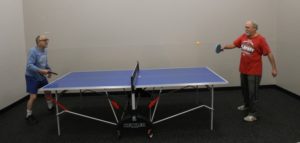by Jayson Cohen American Legacy Solutions
If you are like many other hardworking adults, you may find yourself periodically dreaming about what life will be like after you leave the workforce and enter retirement. Of course, this is an important topic to think about, especially as doing things such as financing later life care can be economically draining for many people. Regardless of whether you plan to simply kick back and relax close to home or you have grand dreams of traveling frequently in retirement, you will need to have enough cash on hand to live on. Unfortunately, a report released by Financial Engines indicates that almost one in seven adults who are at least 55 years old have stated that they procrastinated on saving for retirement. This is very worrying. People should be planning well in advanced if they truly want to enjoy their twilight years. This is especially true if you plan to move to a retirement community. Anthem Lakes is one of the nicer retirement communities in Jacksonville Florida with dockside living.
Why Adults Procrastinate on Saving for Retirement
You may think that the primary reason why individuals would not save money regularly for their golden years is because of a lack of funds, but this is not the case. In the same report, two out of five procrastinators said they got a late start because they had other priorities for their money. Half indicated that stress played a role in retirement planning and saving. Some of the other more common reasons for procrastination include the belief that it is too difficult, the thought that they may get taken advantage of or a lack of knowledge about retirement planning and saving.
The Impact of Procrastination on Your Retirement Plans
Many adults who procrastinate in this important area have the intention of playing catch-up later in life. However, this may be more challenging than it may seem at first glance. When you procrastinate, you give up your regular contributions. You also give up employer-matching contributions and compounded growth, and these two factors can have a huge impact on the size of your nest egg. Delaying your retirement planning and saving effort essentially means that you must come up with a tremendous amount of additional money to catch up to a balance that you would have had if you started saving regularly in your 20s.
The Urgency to Get Started Today
Regardless of the reasons or age, now is the time to make a bold change. By continuing to procrastinate, you simply dig an even larger hole that is more difficult for you to get out of. Saving may be as easy as foregoing that fancy vacation that you take every year or downsizing the scope of your vacation. It doesn’t have to mean creating a self-invested stock portfolio informed by Stocktrades, it’s simpler than that. It may mean not redecorating your home as frequently or scaling down your holiday gift-giving efforts. There are many ways that you may be able to simply cut back without detracting from your quality of life, and these steps can have a huge impact on your financial status in your retirement years. Of course, making regular monthly contributions is also advisable. Saving at least some money now is better than not saving any.
How to Get Started
There are various types of retirement accounts that you may have access to depending on your circumstances. A good starting point is to maximize an employer-sponsored retirement account if your employer offers matching contributions. These contributions could essentially double your total account contributions and help you to get back on track more quickly and easily. If this is not an option, carefully review the pros and cons of various retirement accounts. Once you decide which type of account you want to open, schedule automated transfers. By automating this aspect of your finances, your balance will grow without additional effort required.
Some people prefer to hire a financial advisor to assist with retirement planning and account management. If you are confused about or intimidated by any aspect of retirement planning, it is best to seek professional guidance rather than to take chances. Remember, you see a doctor when you have concerns with your health, why not talk to a financial professional when you have concerns about your finances? We are here to help.




